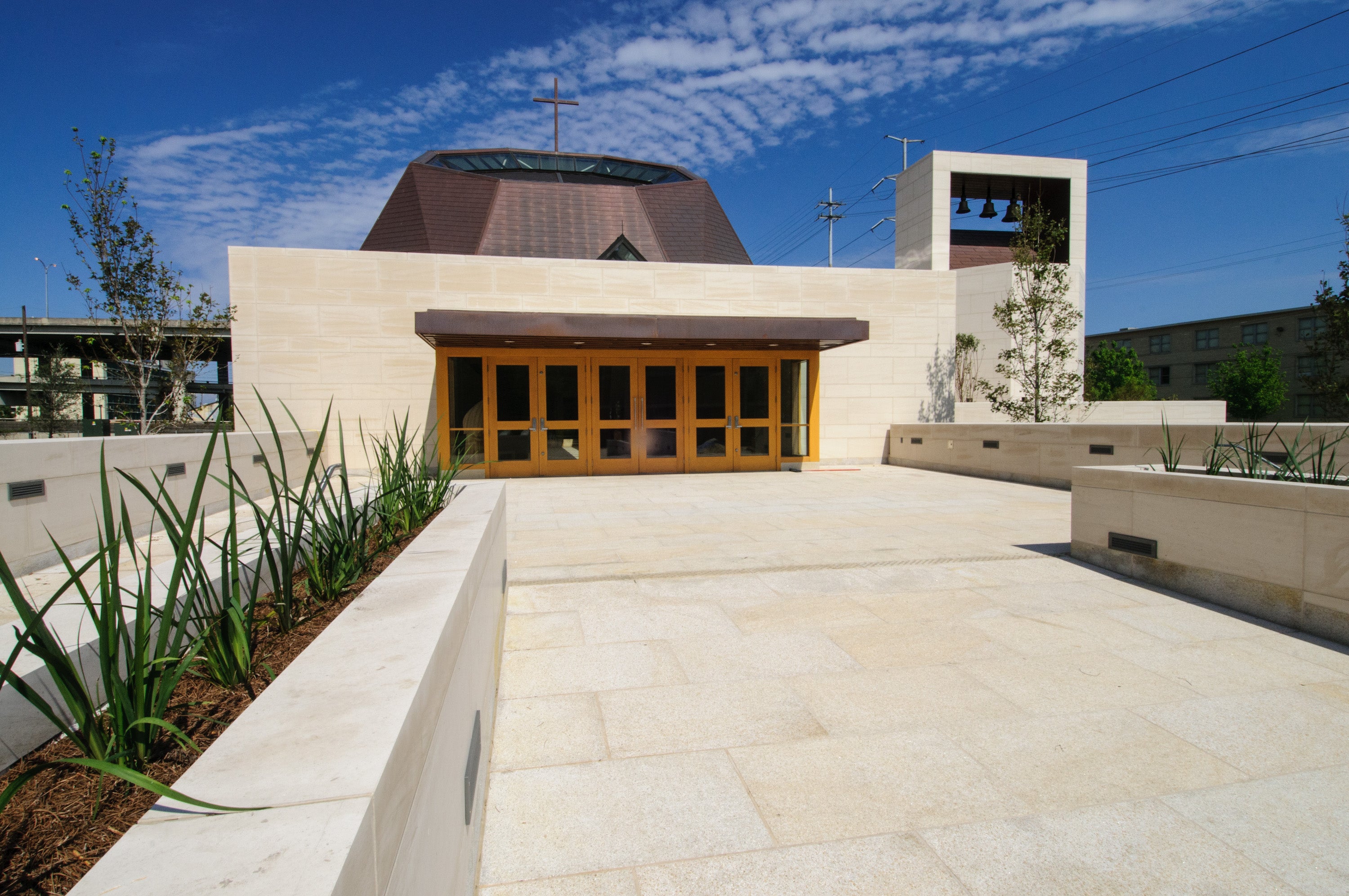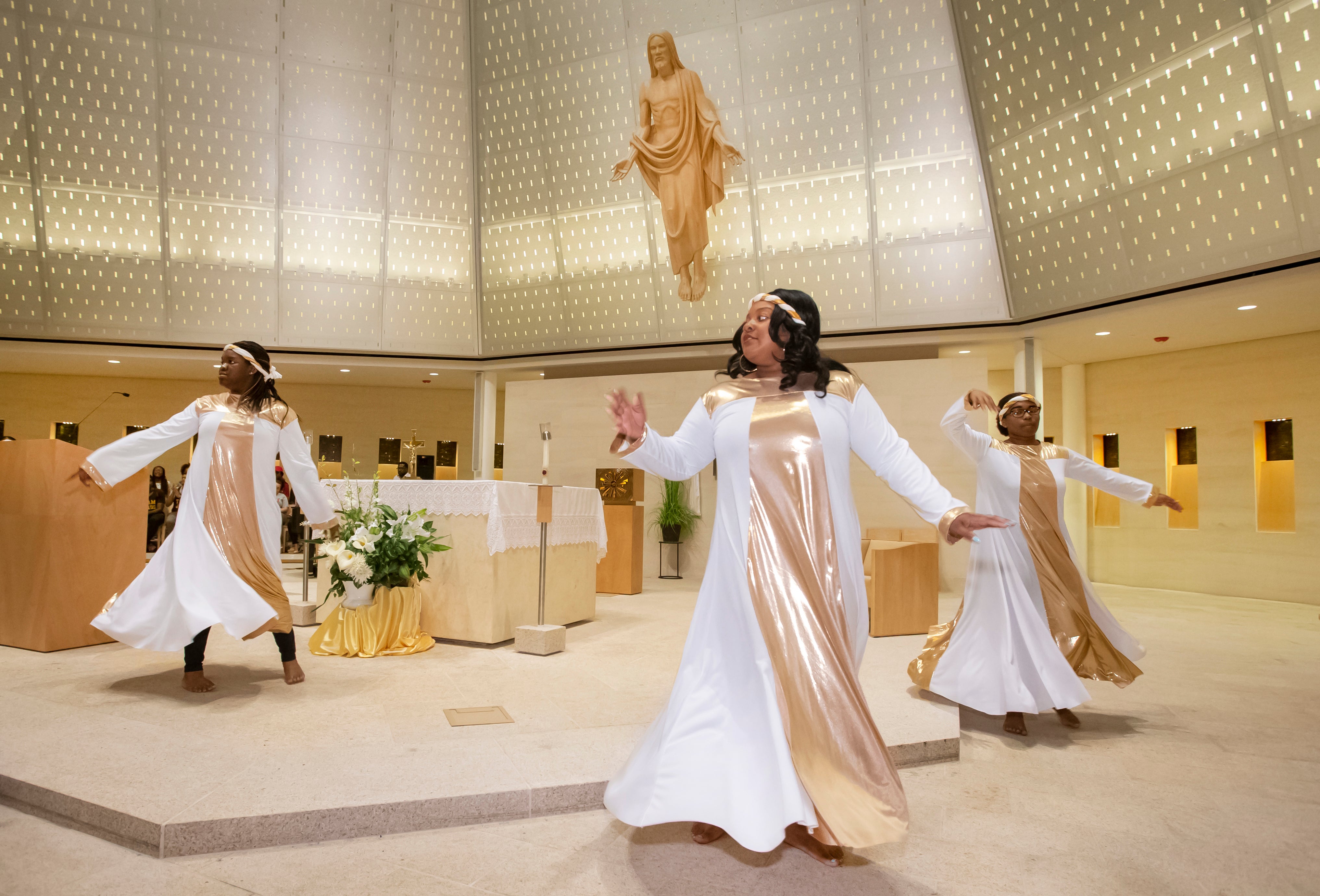Catholic Mission & Ministry

Overview
Xavier University was founded by St. Katharine Drexel (1858-1955) who was canonized by the Pope John Paul II in 2000. Katharine was born into a deeply religious Catholic family of great wealth. Her profound love of God and neighbor led her to challenge her nation and her church to end their discriminatory mistreatment of Native Americans and African Americans. She was convinced that evangelization (serving the needs of others and preaching about God's love for every person) and quality education were the keys to racial justice and empowerment. To this end she built and staffed Catholic schools for Native and African Americans throughout the United States and founded a congregation of women religious (Sisters of the Blessed Sacrament) who wanted to share in her dedication to God and work for justice.
St. Katharine's foundational vision in beginning Xavier was the training of students who would become servant-leaders in society, government and the church. The words on the cornerstone of Xavier's main administration building were chosen by St. Katharine to reflect that vision: "God's greatest work on earth is man; man's master art is leading men to God." Her vision is also found in the Xavier Mission Statement: "The ultimate purpose of the University is to contribute to the promotion of a more just and humane society by preparing its students to assume roles of leadership and service.
Xavier began in 1915 as a college-prep high school and became an accredited College in 1925. In keeping with Mother Katharine's vision, in 1968 Dr. Norman Francis, a Xavier graduate, assumed leadership of the University. At the same time, the Sisters of the Blessed Sacrament (SBS) turned over their fiduciary and legal responsibilities to an autonomous lay board. Since that time the SBS have retained one-third membership on the board and some SBS have continued to serve at Xavier in both teaching and staff roles.
Although many in the local area were aware of Xavier's existence, it was not until 1932 when the beautiful main building of Xavier's current campus was dedicated that the university's identity as Catholic and Black was proclaimed more broadly in newspapers throughout the United States and even in Time magazine. Today that identity remains strong and Xavier's brand as the only Catholic HBCU (Historically Black College/University) continues to be a source of pride, dignity and inspiration for the Xavier Community.
In 1980 Xavier's identity was further enhanced and celebrated with the creation of the Institute for Black Catholic Studies (IBCS.) Housed on Xavier's campus, the Institute began with a Master's degree in Theology and later added Certificate and Enrichment courses in Youth Ministry, Catechesis, and Leadership. The Institute, which meets during the summer, offers an immersion experience that provides an opportunity for African American Catholics and others to deepen their understanding of faith and culture and to share the gift of being Black and Catholic. Moreover, through its staff, faculty, students, and graduates the IBCS has been a critical voice and presence that enriches the Church theologically and culturally, at the local and universal levels, and in significant and powerful ways that only future generations will be able to measure.
Throughout Xavier's existence, its faculty, staff and students have demonstrated a unique awareness of, and commitment to, our foundational identity. Our identity as Catholic and Black has never been exclusionary. That would be antithetical to our cultural and religious roots. Our faculty, staff and students have always come from a variety of faith traditions and our faculty and staff have always been culturally and racially diverse; since segregation was outlawed in 1954 our student body has become increasingly more diverse as well.
While our foundational identity as Black and Catholic is unique, over the years we have expanded our understanding of our heritage to stretch beyond what we look like or where we worship. Our cultural and religious roots have shaped our mission and core values and so our identity and mission are integrated into every aspect of the university. Our institutional heart and soul will forever be Black and Catholic.
Our identity as Black and Catholic:
- Is nourished through an active Campus Ministry staff who provide daily Eucharistic Liturgy and pastoral care; through a variety of activities and programs they encourage and nurture personal faith life and promote commitment to Christian values and Catholic social teachings.
- Is reflected in our academic offerings, particularly in our required core curriculum that includes a 2 hr. Freshman Seminar sequence that emphasizes Xavier's history and mission, 6 hrs. of Theology, 6 hrs. of Philosophy, and 3 hrs. of African American History and Culture.
- Is manifested in the integrity of our actions which are informed by our knowledge and understanding of our roots, mission and core values.
- Impels us to seek academic excellence and develop leadership skills.
- Propels us into meaningful service and seeking unique ways of becoming agents of change in society.
Xavier faculty, staff and students are frequently reminded that fidelity to our unique identity and heritage mandates our legacy. At Xavier the purpose of teaching and learning ~ acquiring knowledge, skills and values ~ is to enable graduates to become leaders who will change the world so it becomes more just and more humane.
